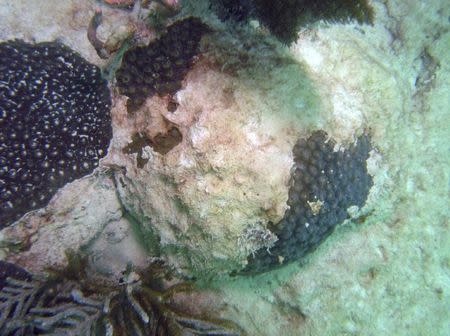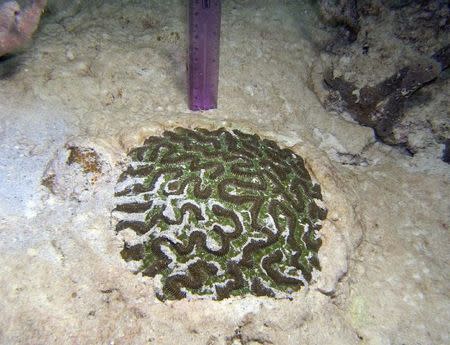Environmentalists ready to sue over Miami port's deep dredge
By Zachary Fagenson MIAMI (Reuters) - Environmentalists said on Thursday they are prepared to sue the U.S. Army Corps of Engineers after researchers found dredging to deepen the port of Miami is burying coral and could destroy the surrounding marine ecosystem for years to come. "All we're asking for is that they follow state and federal law and they're simply not doing that," said Rachel Silverstein, executive director of the Biscayne Bay Waterkeeper, a local environmental advocacy group. The dredge began in mid-June and will continue for another year. It is part of nearly $2 billion of infrastructure work that the port hopes will attract the larger cargo ships expected to pass through the expanded Panama Canal when it is completed. "The situation is worsened by the fact that the (ocean floor) is now covered with a layer of sediment that will prohibit (future coral) settlement and attachment," the Florida Department of Environmental Protection (FDEP) wrote earlier this month in a letter to the Army Corps.Coral is a stationary animal that slowly grows for decades on sea floors and is a key component of ocean habitats. A spokeswoman for the Army Corps, Susan Jackson, told Reuters by email that the Corps is finalizing its response to the FDEP and plans to submit it early next week.Environmental groups who sought to block the dredge during its planning phase sent a warning letter to the Army Corps in July asking them to fix the issues. That was the first step before the groups can file a lawsuit in the hope of convincing a judge to force contractors to protect the surrounding area."We haven't seen much effort to remedy the situation," Silverstein said. Before the project started, marine biologist Colin Foord and other researchers were given two weeks to gather as much live coral as possible from the area slated to be dredged. Foord said his group gathered more than 2,000 corals and transferred them to nearby laboratories. "These barges are leaking sediment as they go offshore," he said on Thursday. "I've talked to commercial fisherman who said they're out 10 miles offshore and there are still plumes of silt."


